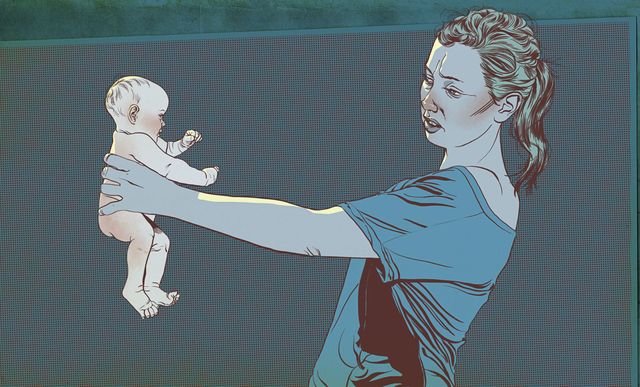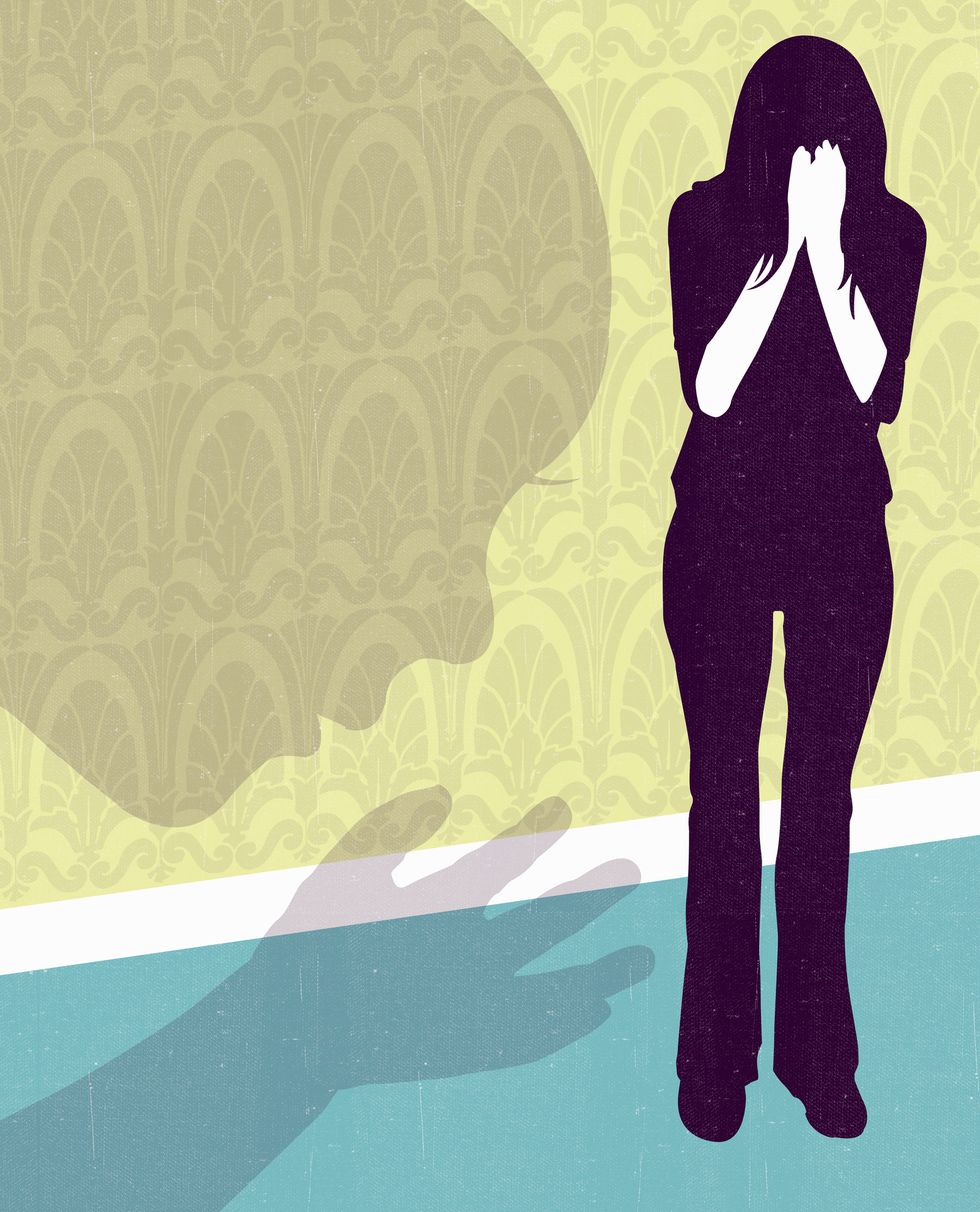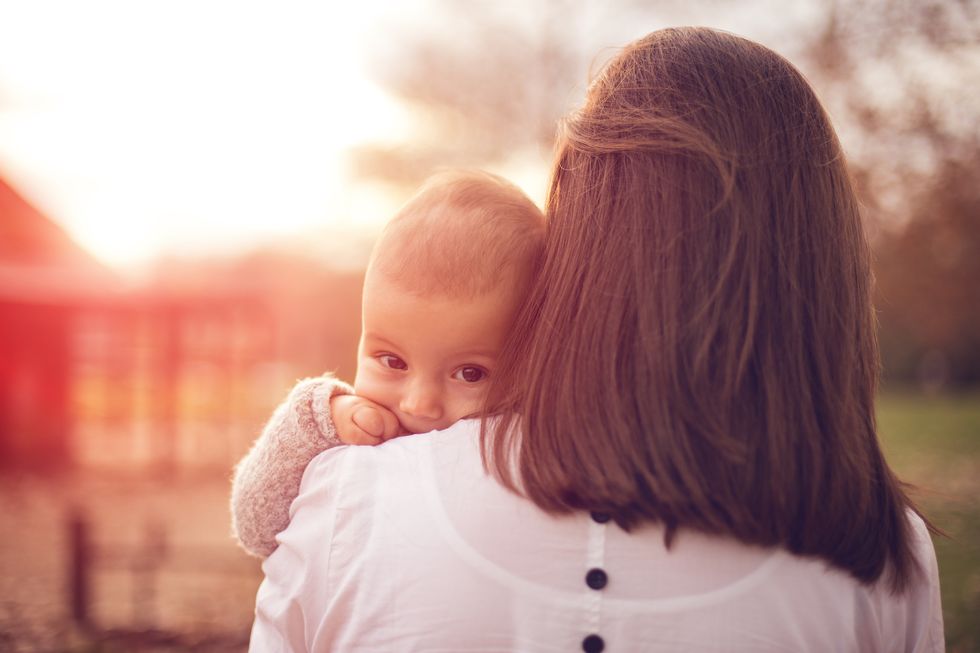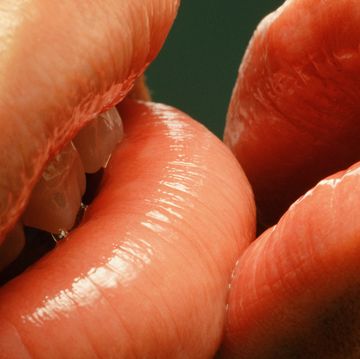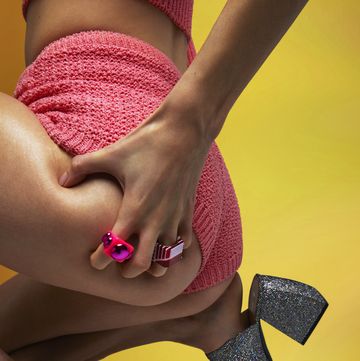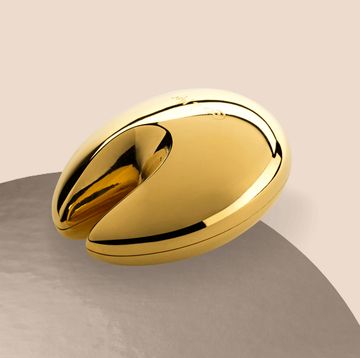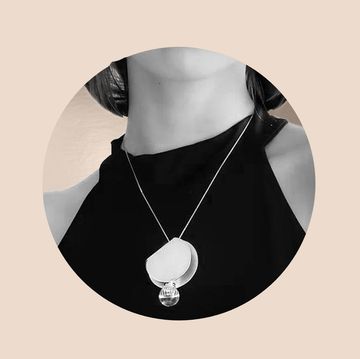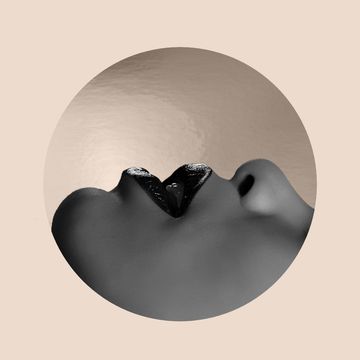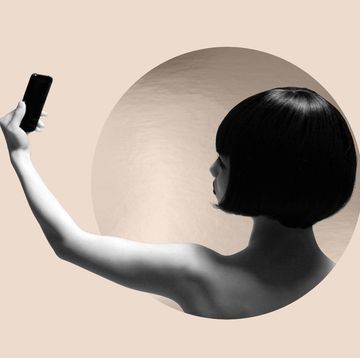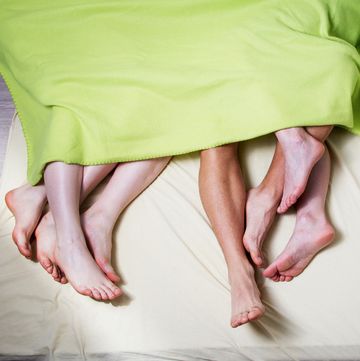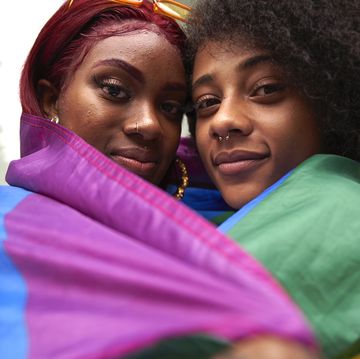'The vagina is the delivery system for the states of mind that we call confidence, liberation, self-realisation and even mysticism in women,' writes author Naomi Wolf in Vagina: A New Biography.
Despite the book receiving a beating from feminist voices, Wolf's point - that the female brain is inextricably linked to the vagina - resonates on some level with a lot of women. All it takes is one outrageous argument with your partner for you to know you won't be ripping their clothes off immediately afterwards. The vagina is not merely an unconnected part of our body, but an intrinsic component of the female brain.
As we know, after traumatic events people's mental health can be compromised - an attack can lead to post-traumatic stress disorder (PTSD), an abusive relationship to anxiety or a particularly traumatic birth to postnatal depression. But what happens when an event in your life completely alters your relationship with sex?
To find out, ELLE spoke to four women whose sex lives, both with themselves and their partners, drastically changed. While some were too young to have an established sexuality before it was stolen away, others felt physically robbed of their femininity and no longer able to see themselves sexually. These changes are not irreversible, however.
The first in our four part series is 36-year-old Rebecca, whose undiagnosed postnatal depression led to psychosomatic pain during sex. She speaks to ELLE about how the lack of enjoyment during intercourse nearly ended her marriage, and how she worked through it.
Rebecca, Untreated Postnatal Depression
I had no idea what giving birth would do to my body. I thought everything would be easy and natural, because that's what you see looking in. No-one told me that you would, effectively, be in tatters down there.
My first birth, with son Luke, wasn't exactly traumatic, but it was long and exhausting. Soon after, my husband and I moved to Manchester to be closer to his family. I was away from all my friends and felt very lonely – I knew something was wrong. I felt inadequate, feelings which were magnified by being away from my own family.
Alone, and without a support network, I simply got on with it. About eight weeks in, the midwife spoke to my husband and I about contraception. Sex was so far from my mind but my husband was, of course, keen for us to get back to it. I knew it was important for our relationship so agreed to give it a go.
I was nervous and uptight and found the first time [after giving birth] very painful.
My husband felt awful for hurting me. We tried a few more times and eventually I was referred to a gynaecologist who said there was nothing wrong. They told me I needed to let the stitched area heal but to 'keep at it'. I knew there was something wrong and it was frustrating being told differently.
After a short period of trying and the pain persisting, I found excuses not to bother: I'd go to bed early, go out, tend to the baby or do housework.
I was an emotional wreck because I felt so torn. I loved my husband and wanted to be a good wife, but having sex hurt and his 'pressuring' (which he didn't, at all, I wasn't really being rational) made me feel cross with him. I felt sad for our marriage, sad for my son that he might end up with separated parents and scared my husband would leave me. I was irrational, irritable and in constant conflict with myself.
In all honesty? I felt completely lost. My husband was patient, but we eventually just stopped talking. I was embarrassed, guilty and felt like I was letting him down. I became very pigheaded and defensive. Looking back, I was impossible, really.
My husband and I went through the motions, hardly communicating, for the best part of a year. I felt lower and lower and began having panic attacks. One day, when our son was about three, I walked into the doctor's office and just broke down. Our GP is lovely and I told her everything. I remember saying that I couldn't cope with all these feelings anymore. I said: 'I don't know who I am, I'm failing as a wife and a mother.'
I ended up on quite a high dose of [the anti-depressant] citalopram. Up until that point, I hadn't quite realised how bad things had been.
I had counselling - privately and with my husband - and we established that I'd been experiencing quite bad postnatal depression which had manifested physically, with a particular association to sex, rather than in the usual 'baby blues' kind of way.
Part of our counselling was to realise that my husband didn't 'just' want sex from me - he missed our intimacy. So we decided have regular date nights - no sex, just time together, alone. Talking, laughing, being ourselves and no pressure.
When we both knew it wasn't leading anywhere specific, it meant we could enjoy the intimacy of something like cuddling.
After about a year, I started to feel more like my old self. My husband and I were talking, my dosage of citalopram came down and we agreed to try for another baby. And, funnily enough, with that positive focus, our sex life improved even further. Our baby girl, Sadie, was born in July 2016.
The physical and mental really do go hand-in-hand. If one aspect isn't right it can really affect the other. Of course we were both worried about having sex again after Sadie's birth. But I was in such a good place mentally that we've had no problems at all. In fact, sex is better than ever (when we have time!) and we're even talking about a third baby. We actively prioritise sex in our relationship and, at the moment, I feel great.
Daisy Murray is the Digital Fashion Editor at ELLE UK, spotlighting emerging designers, sustainable shopping, and celebrity style. Since joining in 2016 as an editorial intern, Daisy has run the gamut of fashion journalism - interviewing Molly Goddard backstage at London Fashion Week, investigating the power of androgynous dressing and celebrating the joys of vintage shopping.
